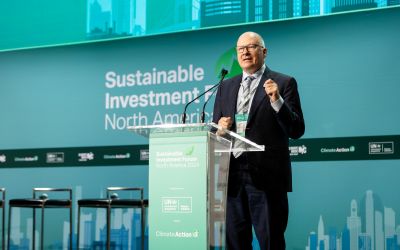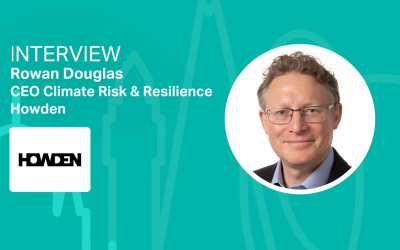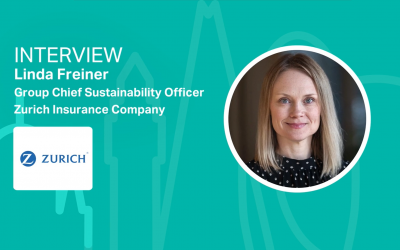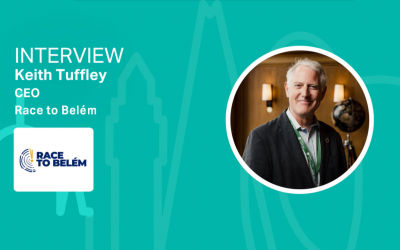Arantxa Tapia on how the Basque Country Government are accelerating the energy transition
Ahead of the Sustainable Innovation Forum 2019 taking place in Madrid, Spain on the 10-11th December, we caught up with Arantxa Tapia, Minister of Economic Development and Infrastructures of the Basque Government, to discuss the steps the Basque Country Government are taking to accelerate the energy transition.

Ahead of the Sustainable Innovation Forum 2019 taking place in Madrid, Spain on the 10-11th December, we caught up with Arantxa Tapia, Minister of Economic Development and Infrastructures of the Basque Government, to discuss the steps the Basque Country Government are taking to accelerate the energy transition.
Q. Let’s start with some background and your long-standing history of creating energy strategies for the Basque Country?
For many years, the Basque energy system has been moving towards a more sustainable model, increasing its reliance on renewables and reducing the use of petroleum-based sources. We first began developing this strategy back in the early 1980s, long before the term "energy transition" was coined; at that time we were entirely dependent on fossil-fuel energy sources. Since then we have successfully supplanted the use of coal in energy production and cut the share of petroleum derivatives in final consumption by almost 20 percentage points, without affecting the competitiveness of our economy and our manufacturing industry. We are on the right road, and we are continuing to make good progress in this direction, in line with European Union energy policies.
Q. What would you say is the biggest challenge facing the energy industry today? How has this changed over the last twenty years?
Basque industry has made great strides in improving its energy efficiency and production processes. A key factor has been the use of high-efficiency less pollutant energy sources, such as natural gas. At the same time, the increased use of renewables is enabling industry to be more sustainable without impacting competitiveness.
One of the great challenges faced by industry in the twenty-first century is process digitisation. ‘Basque Industry 4.0’ —our strategy for the digitisation of Basque industry— seeks to create a network with digital solutions that will enable us to meet the challenges of increased automation.
Clearly, the climate challenge also represents an opportunity for Basque industry to bring its extensive knowledge to bear in areas such as renewables, smart grids and power storage—which will all be essential in meeting the target of moving towards low-carbon energy systems. Our strategy policy in this area, EnergyBasque, is designed to foster large-scale industrial development in these fields, and to place us at the forefront of the industry worldwide.
Q. Can you tell us about the Euskadi Energy Strategy 2030 (3E2030), what will be the keys to its success?
The 3E2030 is a long-sighted strategy developed by the Basque Government which aims to implement a gradual shift towards a new energy model. The goal is to ensure a competitive high-quality supply for the Basque economy, industry and society more generally. For a small territory such as the Basque Country there are some major hurdles to be faced, but we are confident we can achieve the goal of developing a low-carbon energy system.
Specifically, the strategy targets an increase in the use of renewables of over 126%, meaning that by 2030 they will account for up to 32% of final consumption. It also seeks to promote efficiency and energy saving in all sectors. Our overall target is to achieve accumulated savings of 25% by 2030.
Q. Energy systems are significantly changing and faced with several powerful forces such as decentralisation and decarbonisation. What collaboration and instruments are needed to ensure that the disruption strengthens existing networks and doesn’t result in unintended consequences that lessen progress towards a clean, smart and sustainable energy system?
The disruption involved in changing an entire energy system inevitably entails far-reaching consequences. We believe that the task needs to be undertaken with rigour, backed by expertise and research into new technologies that will enable us to further drive the change-over, while at the same time generating new opportunities for wealth and employment. For example, it is important to avoid the danger of removing existing technologies without having a realistic alternative in place, thus making it necessary to reintroduce other more pollutant energy sources—a situation which would generate public frustration, given the legitimate expectations of change. Planning and consensus are therefore vital in order to ensure that society as a whole can advance unambiguously towards a new more sustainable model based on renewable energy.
In this regard, some of the most major obstacles we face are a lack of consensus and the absence of a stable legislative framework that would enable sustained —and sustainable— development of clean, decentralised, and competitive energy sources. If we can manage to reach solid agreements, the shift towards new models will be exponential.
Q. What is the importance of events such as the Sustainable Innovation Forum in supporting the energy transition?
In terms of all the issues we've discussed, forums like this are of key importance for sharing ideas, debating and reaching agreements. At a time when the major players are beginning to start negotiating, in the light of the scientific evidence, I think it is more necessary than ever to meet, debate and take control of this essential transition process in order to ensure a sustainable future for society and for humankind in general.
Basque Country Government is a Strategic Partner of the upcoming 10th annual Sustainable Innovation Forum taking place alongside COP25, 10-11 December in Madrid, Spain. To learn more about the agenda, the panels, the speakers and how to register, visit the event's official website here.






